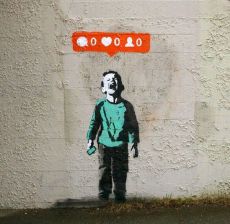 I’ve written this tune before.
I’ve written this tune before.
So have others.
64 years ago, Kurt Vonnegut, in his first novel Player Piano, wrote about the problematic march of technology. A “player piano” is a piano that plays itself. Mechanical music.
The protagonist in the novel finds himself fighting for his livelihood in an automated world where the machines do all the work. He’s trying to land a job as a tech engineer.
In one scene, he prepares to play a game of chess against a chess-playing machine. His friends place bets on the game. They all bet on the machine. Our hero wins the game, but only because the machine short-circuits. All of the losing betters protest the victory. But it would have won, they cry, if it had worked properly!
Late in the book, after successfully infiltrating and destroying a cache of machines, the main character likens the operation to the Battle of the Little Bighorn. One small triumph against an inevitable tide. Like the white man would inevitably destroy Native American culture, so will technology destroy human ingenuity.
***
Every day you can find a new article about the next injection of technology into our lives.
Like digital software that measures speech patterns in kids, in order to predict the onset psychotic illnesses like schizophrenia and bi-polar disorder.
Or the use of a robot to kill a suspect in Dallas.
You might not be surprised to learn that more than half of the country gets their news from Facebook.
The race is on for the fully automated car. Next up: trucks, planes and drone-deliveries.
The Economist recently put out a story about the “post-truth” world. The gatekeepers of old media gone, everyone becomes a publisher. Experts don’t matter, anymore. Evidence doesn’t really matter, anymore. We all have feelings, which can be confirmed by our social media echo chambers.
As Trump has figured out, “people are saying” that anything can be true, because once you say it, people will be saying it, which, in the current state of affairs, makes it true.
***
We live in a post-privacy world as well. Imposed by social norms: Sharing is caring. A proposal. An anniversary. New dog. New baby. New baby gets new outfit. Vacation. Visit with a friend. A political whim. An insight. A rant.
Our personal lives and our personal time are no longer sacred. Alone time is connection time. Our phones are never far away. Our experiences are not ours alone, but for others to experience as well. We become our own paparazzi.
The whole thing enabled and egged on by billion dollar corporations seeking to monetize our interactions.
In a more recent novel, The Circle, author David Eggers imagines the far extents of this new kind of world. In the Circle, everything is shared. If you don’t want to share it, you must be hiding something.
Politicians are pressured to live-video feed themselves, 24/7. Just to make sure nothing is going on behind closed doors. Concerned citizens can tune in whenever they want. Soon, everyone is sharing their lives, live-feed, for anyone to see. If you turn off your feed, you must be hiding something.
Since everyone is on the Circle, why not make democracy more efficient? In the Circle, the majority rules. Real-time online voting allows this to happen. Should we pass this new healthcare law? Should we bomb this country? Let the people decide.
Essentially, society has turned into a cyborg.
***
The other day a friend I hadn’t seen in months invited me to a football game. Unlike many other people I know, this friend does not use social media. No Facebook, no nothing.
So I was completely unawares what he had been up to, lately.
We spent only a few hours together: drove to the game, stayed for a half, then drove home. But I realized afterward that, during our short time together, I felt more connected to this person than pretty much all my social media connections, even those who post every day.
It was nice.
***
DISCLAIMER
The Obligatory Qualifying Statement:
Yes, I appreciate certain benefits of the technological takeover of everything. I’m publishing on a blog, after all. Rapid and widespread dissemination of information can be a positive thing. I listen to podcasts on my smartphone. I enjoy certain aspects of social media.
With every shift in technology, there are losses and gains. Over time, technological gains have been positive, at least in terms of material well being.
It’s possible my concerns are overwrought. It’s possible I will re-read these words decades from now and laugh at my naivete. What a worry wort.
Maybe computers can effectively diagnose mental illness. Maybe that’s a good idea.
***
The tide is inevitable.
I think there are boundaries, though, that need to be defended vigorously.
Personally, the mental battle is waged daily. Small losses each time I check my phone at a traffic light. How many insights have been lost in passing time, replaced by a glance at headlines on a news feed? It’s impossible to quantify.
How many hours lost on a glowing scroll could have been spent listening to music? Or reading novels? How would this have changed me, as a human being?
It’s impossible to measure the trade-offs. At a certain point, though, the costs exceed the benefits.
Human ingenuity can still be preserved. But not without a fight.